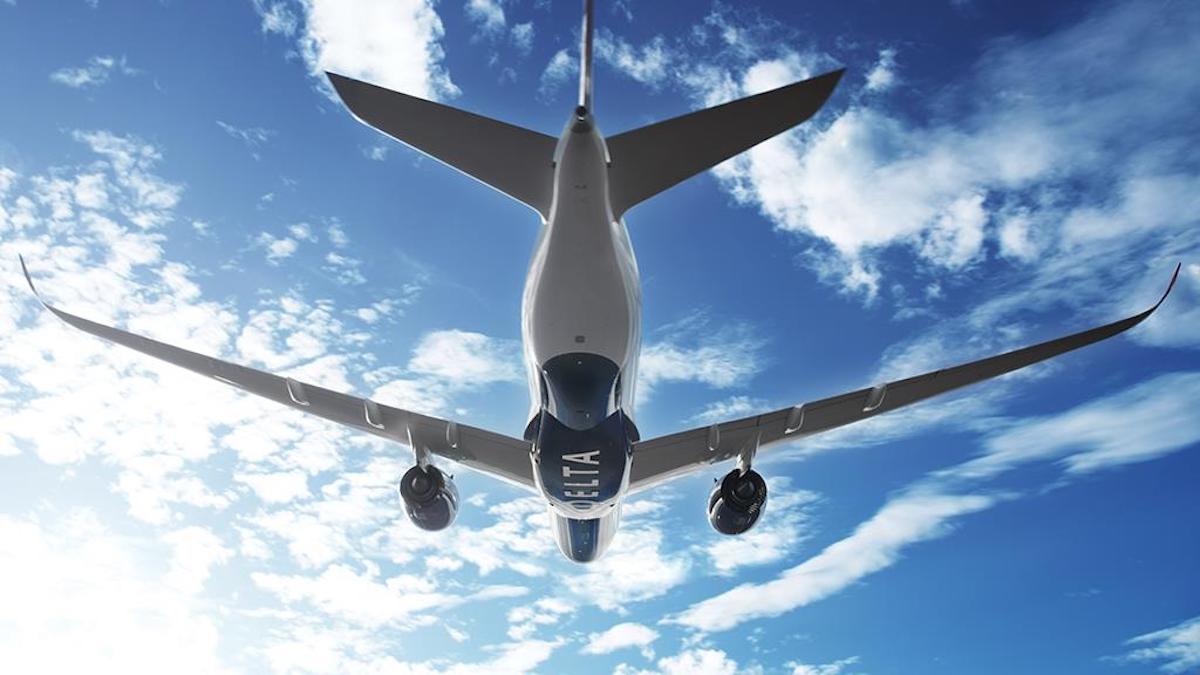
In an odd turn of events, it turns out Delta Airlines will not begin its triangle service between Atlanta, Johannesburg, and Cape Town because the South African government will not let it.
South Africa Blocks Delta Air Lines From Operating Triangle Service
At 8,439 miles, Delta’s Atlantic – Johannesburg service was one of the longest flights in the world. When Delta retired its fleet of Boeing 777-200LR aircraft, it was not left with an aircraft capable of continuing that service, at least on the return journey with headwinds and a plane full of cargo and passengers.
But Delta came up with a plan to operate a triangle route from:
- Atlanta – Johannesburg
- Johannesburg – Cape Town
- Cape Town – Atlanta
The lower altitude and shorter distance between Cape Town and Atlanta made the long haul route more commercially feasible.
Then the COVID-19 pandemic hit. But as international travel rebounds as borders re-open, Delta made the unexpected announcement last week that it would not fly to Cape Town. Instead, it shared that it had worked out the technical limitations and would fly nonstop to J’Berg and back. As Delta described the decision in a regulatory filing:
As a result of commercial, operational, and market developments making it feasible for Delta to operate a direct return routing of Atlanta-Johannesburg-Atlanta using 306-seat Airbus A350-900 aircraft, Delta no longer plans to operate the the triangle routing of Atlanta-Johannesburg-Cape Town-Atlanta.
The new nonstop service will begin on August 1, 2021 barring any unforeseen pandemic-related delays.
Did the Airbus A350-900 suddenly gain a longer range? Not to our knowledge. Turns out the South African government blocked Delta from operating its proposed triangle route. No reason was given for the denial. The news was revealed in an order from the US Department of Transportation (DOT):
In April 2021, Delta Air Lines, Inc. informed the Department of its unsuccessful attempts to secure approval from the South Africa Department of Transportation to amend its Foreign Operator’s Permit to allow a stop in Cape Town on the return segment of its Atlanta-Johannesburg service.
Delta first applied to the SADOT for the Johannesburg-Cape Town coterminalization authority in May 2020. There followed months of repeated requests by the carrier to secure its authority and further outreach by the US Government in support of Delta’s application, which is consistent with the rights under the Agreement, which in fact allows for coterminalized services by carriers of both countries.
However, on May 14, 2021, the SADOT informed the Department of its view that the Agreement “does not confer domestic coterminalization rights for designated airlines of both countries,” and that it intended to deny Delta’s application.
The DOT has responded by blocking South African Airways from operating similar so-called “coterminal” (multi-stop) flights within the United States.
While our preference would be to grant SAA renewal of all of the bilaterally-authorized exemption authority it seeks, the SADOT has taken the position that the coterminalization authority sought by Delta is not provided for in the Agreement.
We strongly disagree with that position, but our attempts to engage with the SADOT in order to reconcile this matter and vindicate the important US bilateral right at issue have not succeeded.
Therefore, in the circumstances presented, we have tentatively decided that the public interest calls for denial of the portions of SAA’s exemption renewal request. this, we are proposing to do no more than limit SAA’s authority per its own government’s unilateral reinterpretation of the Agreement.
The reciprocal move is theoretical punishment, as South African Airways currently does not serve the USA.
CONCLUSION
Delta will not add Cape Town service after all, instead simply operating a round-trip between Atlanta and Johannesburg. However, the reason appears to be less “commercial, operational, and market developments” and more specifically that South Africa would not allow the proposed trinagle route. The USA has responded by blocking South African Airways from (theoretically) operating similar routes in the United States.
> Read More:Delta’s New Triangle Route To Cape Town Puts Heat On United Airlines




That JNB-ATL segment is going to be weight restricted in a way that makes this flight really hard to understand economically. It seems highly unlikely that they will be able to command the types of fares they will need to make that profitable.
(Per Great Circle Mapper, ATL-JNB: 8,439 miles, JNB-CPT: 790 miles, ATL-CPT: 8,130 miles)
Hard to understand how a (relatively small) 300 mile difference for an 8,000+ mile flight (~3.7% difference, about 30 minutes of a 16-17 hour flight, or ~12,000 pounds of fuel out of ~320,000 total or ~1,800 gallons of fuel out of ~48,000 total) is the determining factor. (It’s like saying your car has enough gas for a 81 mile trip but not enough for a 84 mile trip.) If a plane can fly 8,130 it could probably fly 8,439 although I guess it’s possible that a plane’s range might be 8,200 or 8,300.
Certainly hope the airlines aren’t cutting their decisions that tightly, it’s a little too close for comfort. I suspect there’s something else to this decision (that Delta isn’t telling us).
@Doubting Thomas – The issue with JNB vs CPT is not the distance as much as the altitude. JNB is at 5,500′ while CPT is at basically sea level. Aircraft, particularly when taking off heavy, use significantly more fuel to take off at higher elevations.
Apparently, the last three A350s Delta received from Airbus have have been re-certified with increased maximum takeoff weight of 280 tons – enabling the aircraft to operate from JNB without weigh restrictions.
Airbus announced an increase in the TOW of their A359s back in 2018. Delta Airlines has known since 2018 all of their A359 deliveries from May 2020 onward would be of the higher variant. As a matter of fact Delta took delivery of their first 280 ton A359 back in May of 2020. Yet Delta still announced this triangle route after they announced the retirement of their 777s. After the South African government turned down Delta’s request to run the triangle route, Delta then enlisted the help of the USDOT and again South African turned them down. You don’t announce a triangle route, request permission get denied, request US government intervention on your behalf and get turned down again if your aircraft which you’ve known was coming since 2018 and took delivery of in 2020 could do the route nonstop without a weight restriction. Do to JNB’s elevation and during the summer months when aircraft are operating in ISA+15 range Delta will not be able to take off from JNB with 280 tons. If Delta is lucky they will be able to get 265 tons in the air during the summer months.
Delta should have kept their 777-200LRs in the fleet because they are going to take a massive hit on their TOW with these A359s.
Sorry, Mr. Bastian. I’d rather connect in Doha anyway.
Three comments :
1) Delta is not being blocked from flying to Cape Town. They can fly ATL-CPT-ATL or ATL-CPT-JNB-CPT-ATL if they wanted, but just not the triangle flight ATL-JNB-CPT-ATL if they want traffic rights from both JNB and CPT. They can even fly ATL-JNB-CPT-ATL if they choose to make CPT only a technical stop.
2) This is not a unique position taken by SA DOT in relation to their interpretation of co-terminalisation. Both Turkish and Qatar Airways have had to institute a double drop in Johannesburg for their Durban flights for the same reason (viz. DOH/IST-JNB-DUR-JNB-DOH/IST) rather than a triangle route like Delta wanted.
3) There is a long history of friction behind the scenes between SADOT and US DOT. US DOT has been pushing for many years for SA to sign an open skies agreement with the US which the South African side have resisted. Conversely, the SA side has been aggrieved over the grant of ATI to the Star Alliance JV which excluded SAA (the competition commission in South Africa actually has ruled that membership in Star Alliance constitutes illegal anti-competitive activity and SAA had to apply for periodic exemptions on national interest grounds to maintain their membership), denial of codeshare permission to SAA for US origin passengers connecting on fifth freedom routes via ACC/DKR, etc…
So this is just the tip of the iceberg. Plenty of frostiness below the surface as well.